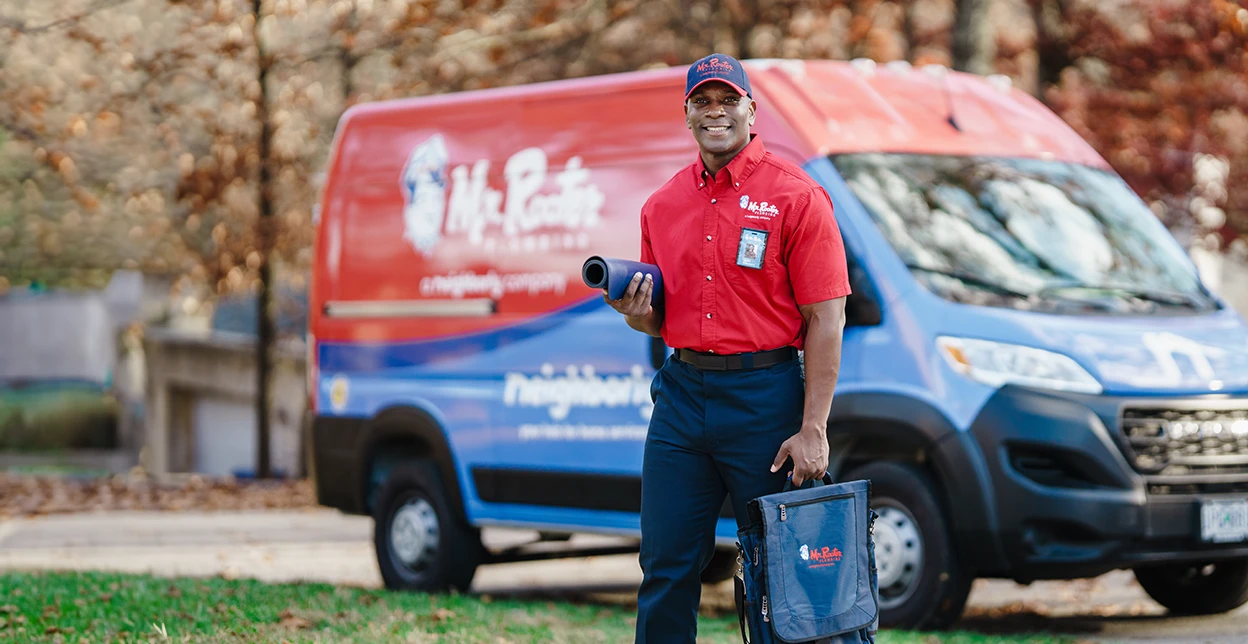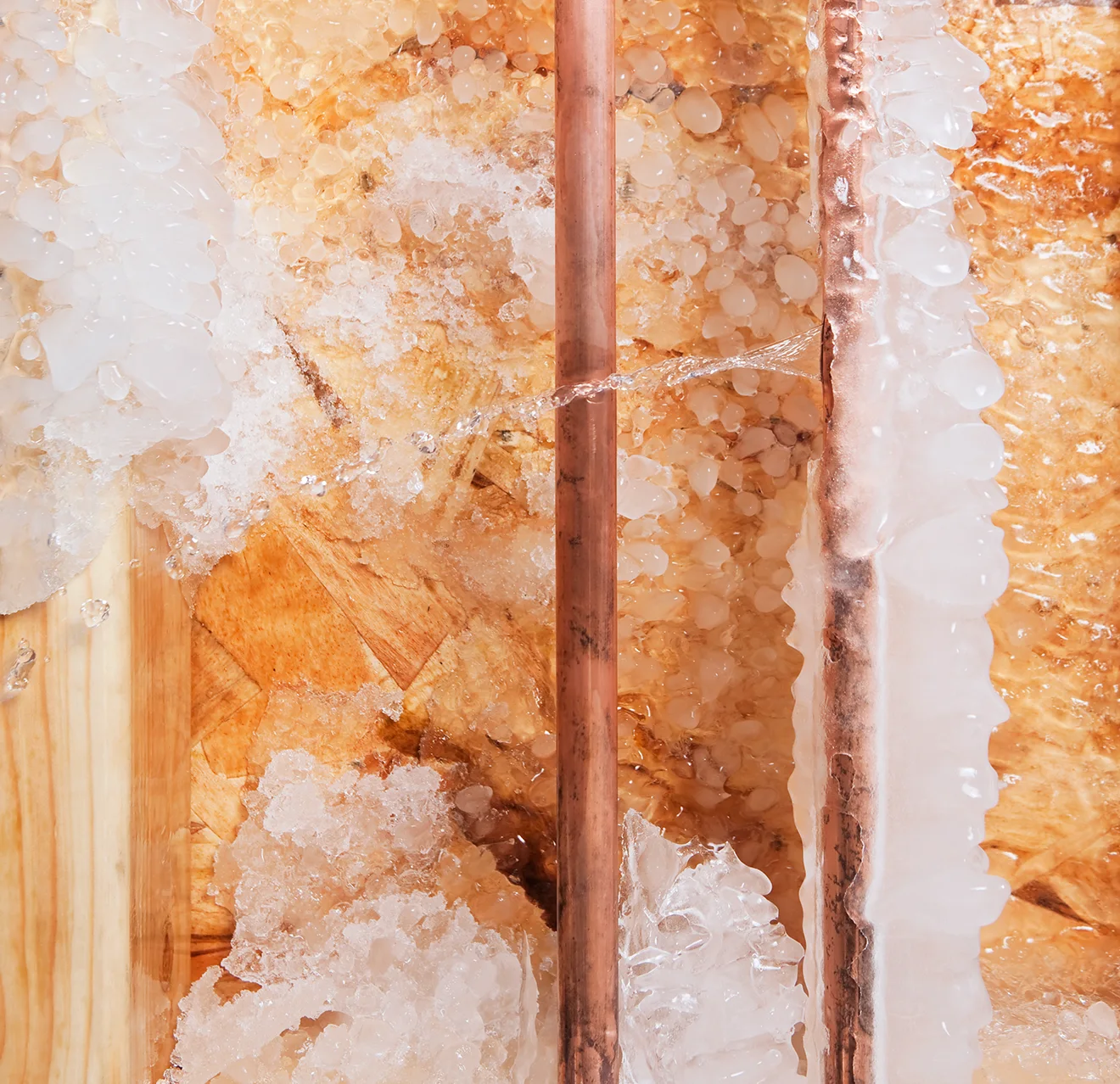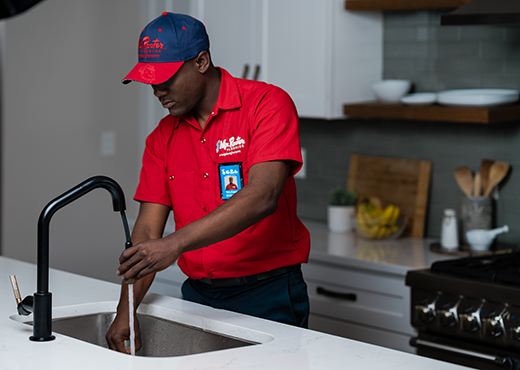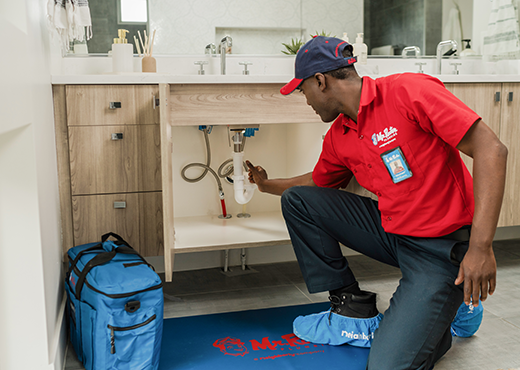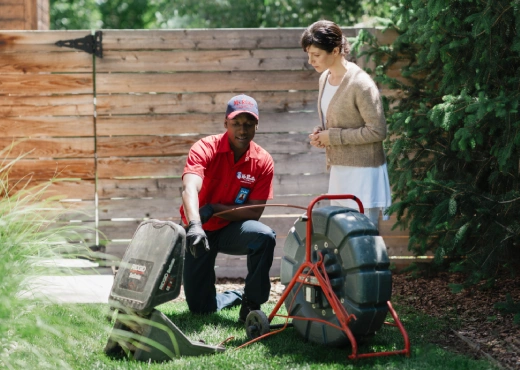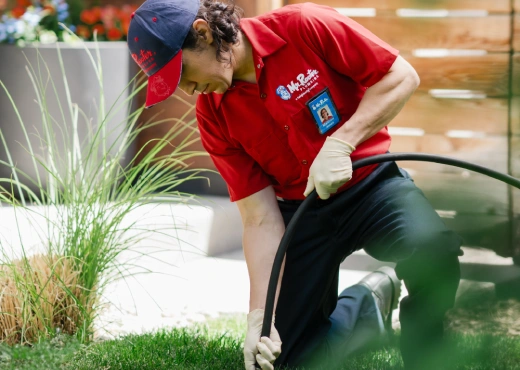You can take many actions to keep pipes from freezing in your home, and Mr. Rooter Plumbing of Omaha can provide a wide array of effective techniques. Carrying out these measures won’t take long to complete, and they keep your home’s plumbing safer from the frigid weather. Protecting your pipes can prevent catastrophic property damage, ruined keepsakes, and the substantial costs accompanying necessary repairs or replacements. The following tips to prepare your plumbing and prevent frozen pipes are simple and have proven successful:
- Open a faucet to let a very small amount of cold water run. This step keeps water moving in your pipes and prevents them from freezing
- Ensure warm air circulates around your pipes. For instance, you can open the door to your under-sink cabinet to let warm air into the space.
- Keep air moving around your pipes by placing a small fan near them.
- Properly seal and weather strip your windows, basement doors, and crawlspaces.
- Use pipe insulation materials to insulate your exposed or external pipes.
- Before winter starts, drain all water out of your sprinkler system. You should also disconnect and drain your outdoor water spigots and outdoor hoses.
- Seal and insulate your attic and replace drafty windows and doors.
- Use protective plastic covering over your windows in colder areas, and consider installing storm windows.
Contact Us for Service in Omaha
Don't leave your home's pipes vulnerable to freezing and bursting. Before winter weather and shivering temperatures move in, you can carry out several steps to safeguard your home’s plumbing against freezing and prevent catastrophic damage. If you find out one of your home’s pipes freezes, take action immediately by contacting Mr. Rooter Plumbing of Omaha to get prompt plumbing solutions. We respond as soon as possible and perform quick and effective repairs on your busted frozen pipe. Our talented plumbing technicians have ample training, expertise, and top-notch equipment to help you prevent a winter disaster in your home. Contact us today to request an estimate on residential frozen pipe repair service and schedule a visit to your home.
